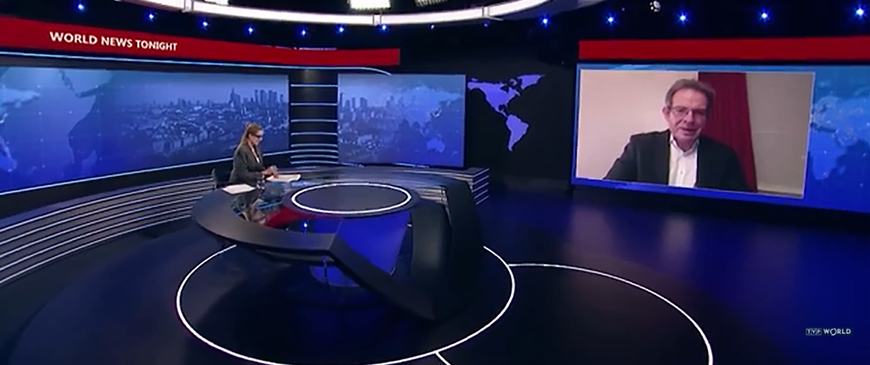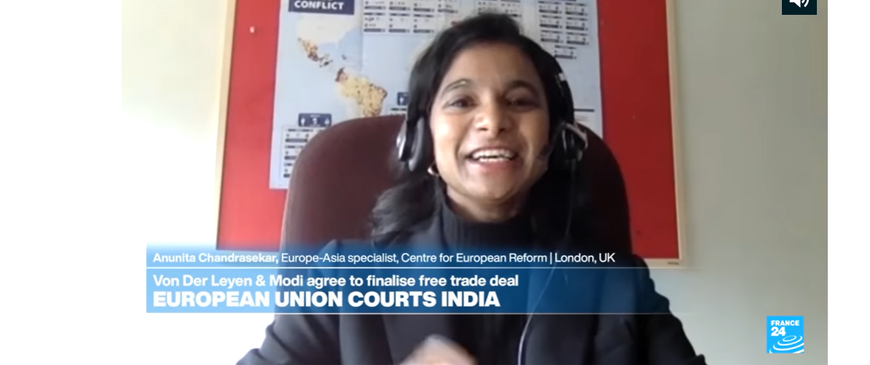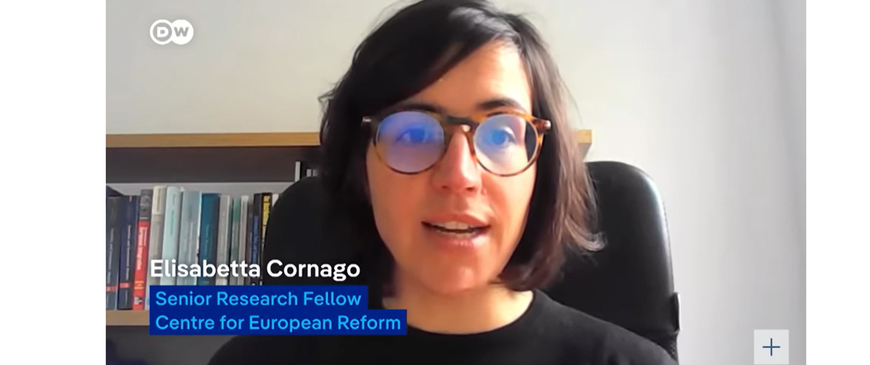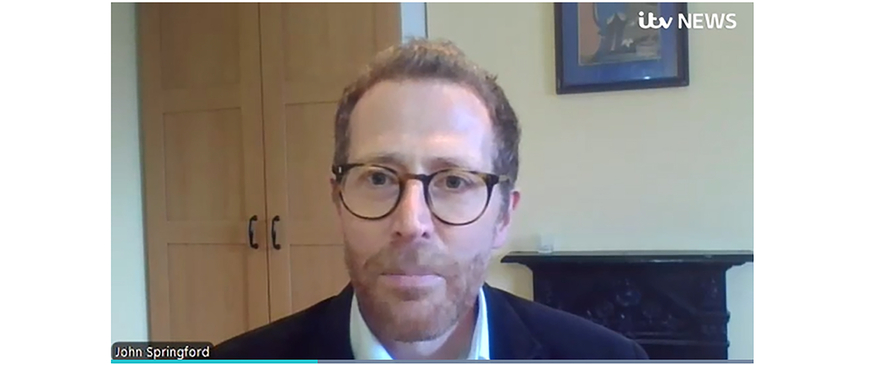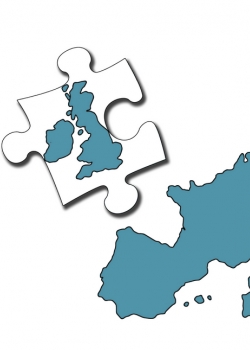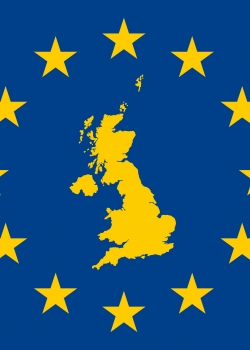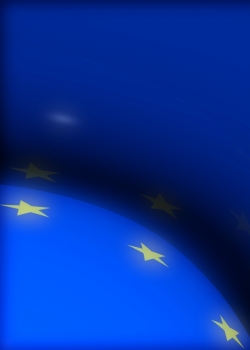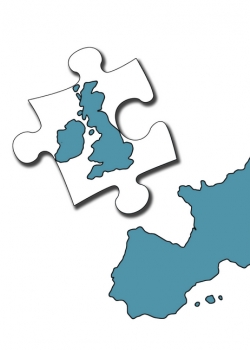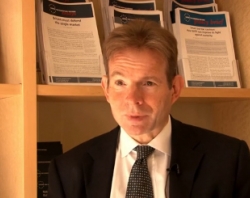Press
Brytyjski ekspert: Cameron w sprawie budżetu Unii postawi na swoim
23 November 2012
Gazeta Wyborcza
Brytyjski premier nie jest sam. Oszczędności chce Szwecja, Holandia i, co najważniejsze, Niemcy - mówi John Springford, analityk brytyjskiego think tanku Centre for European Reform
Workers must get a bigger slice of the pie
22 November 2012
The New York Times
Economic growth in Europe depends on a recovery in household consumption. And that, in turn, requires a rethinking of the balance between capital and labour.
Viewpoints: How experts see UK role in EU
22 November 2012
BBC News
How does the UK fit into the EU's plans for closer economic and political integration?
Many British MPs want Prime Minister David Cameron to call an "in or out" referendum and opinion polls suggest many British voters are disillusioned with the EU.
BBC News asked some prominent European politicians...
Many British MPs want Prime Minister David Cameron to call an "in or out" referendum and opinion polls suggest many British voters are disillusioned with the EU.
BBC News asked some prominent European politicians...
EU budget: Small storm in large tea-cup
22 November 2012
BBC News
But,as John Springford from the CER has pointed out, [if the UK's contribution to the EU after 2013 rises by around £500m a year] it's the equivalent of about 0.03% of our GDP - roughly the annual budget of Oxfordshire County Council.
European Union leaders ramp up battle over budget cuts
22 November 2012
USA Today
"With the budget, it is in the UK's interests to compromise," said Simon Tilford, chief economist at the CER. "If the eurozone integrates further," he said, referring to the EU members that share the euro currency, "then the UK's position could become increasingly untenable."
Investing in a triple-A-free bond world
22 November 2012
The Wall Street Journal
Several economists and other experts at a conference in Brussels Wednesday organized by the CER, depicted the weakness of the French economy as a challenge that the eurozone is likely to have to confront next year.
Trade: How reliant is the UK economy on Europe
22 November 2012
Channel 4 News
Katinka Barysch speaks on a Channel 4 News panel discussing what would happen if the UK decided to leave the European Union (at 02.30).
Britten steeds anti-Europeser
22 November 2012
Nieuwsuur
Philip Whyte speaks on Dutch television on the UK and Europe (at 04.57).
Les jeunes tories europhobes veulent sortir de l'Union
21 November 2012
Le Monde
M. Pritchard recense douze députés conservateurs qui ont publiquement appelé à une sortie de l'Union. "Et cinquante à soixante nous soutiennent anonymement", précise-t-il. Un chiffre que Charles Grant du CER, estime même sous-estimé: lui compte entre soixante-dix et cent députés prêts à faire le grand saut.
Meerderheid Britten wil uit de EU
21 November 2012
Knack
Aan de vooravond van alweer een belangrijke Europese topbijeenkomst is Charles Grant in Brussel. De directeur van het Britse Centre for European Reform heeft het bijzonder druk dezer dagen.
Britain and the EU budget
21 November 2012
BBC News
Charles Grant speaks to Gavin Hewitt about the EU budget negotiations in Brussels (at 25.06).
EU exit is no longer taboo topic in Britain
19 November 2012
Agence France Presse
Philip Whyte, from the CER, agrees that the British "never really signed up to the political dimension of the EU, the stuff about developing the foreign policy dimension or the single currency".
In face of debt crisis, EU asks for budget increase
19 November 2012
Marketplace
A veto, says Simon Tilford, chief economist at the CER, will raise serious questions about Britain's EU membership. "It will be another indication that the country really does seem intent on distancing it self from the EU and perhaps even withdrawing from the union," Tilford says.
Disagreements with Germany over Europe could spell big trouble
17 November 2012
The Economist
Charles Grant of the CER believes that he [Mr Hollande] is trying to strengthen his position relative to Germany in three ways. One is to forge stronger links with Mediterranean countries, especially Italy and Spain, to form a block that could help to counter Mrs Merkel.
Charles Grant discusses President Hollande and France
17 November 2012
Charles Grant discusses his recent insight article 'Hollande, the Germans and 'political union'. ...Before becoming French president, Franҫois Hollande did not appear to take much interest in the EU. However, in his youth he was a protégé of Jacques Delors, the French left’s great European, and his instincts seem...
Who will dictate Europe's future?
16 November 2012
BBC News
Which country holds the key to the euro's fate? Which of the 17 members will turn out to be the "pivot state" - the country around which the future of the eurozone will turn? I spent most of last weekend thinking about the future of Europe with economists, politicians and senior policy makers at a two-day seminar organised by the CER.
Lesser-known Brits are heavy-hitters in Europe
15 November 2012
EurActiv
EurActiv’s UK40, released today shows that officials and politicians relatively unfamiliar to a British audience top the lists of those who pull the policy strings on EU affairs. Politicians and officials did not wholly dominate the list, which also included Charles Grant (32nd) the director of the CER.
Middle class amid industrialized economies
11 November 2012
The Voice of Russia
Interview with Simon Tilford – chief economist at the London-based Centre for European Reform about middle class in industrialized or developed economiesI think over quite a long period of time the middle class in industrialized or developed economies has been I think squeezed. What we’ve seen over
...
...
EU crisis: Cutting down mast to save ship
09 November 2012
The Voice of Russia
This week the European Commission has published a new economic forecast for the eurozone countries up to the year 2014. This is discussed with our guest speakers Simon Tilford, chief economist at the CER and Frederik Erixon.
Can Angela Merkel talk Cameron into being a more flexible ally?
07 November 2012
The Guardian
The vexed EU budget is supposed to be the main topic of discussion when Germany's chancellor, Angela Merkel, meets David Cameron for supper on Wednesday in Downing Street.

